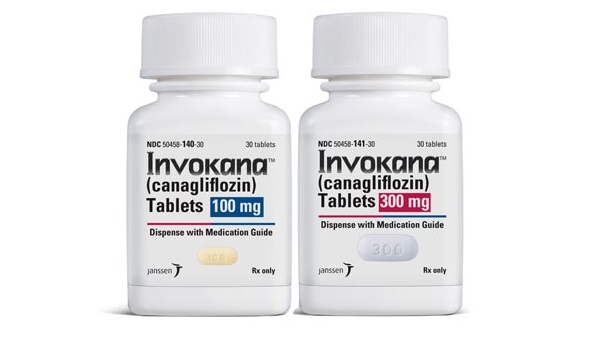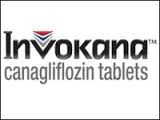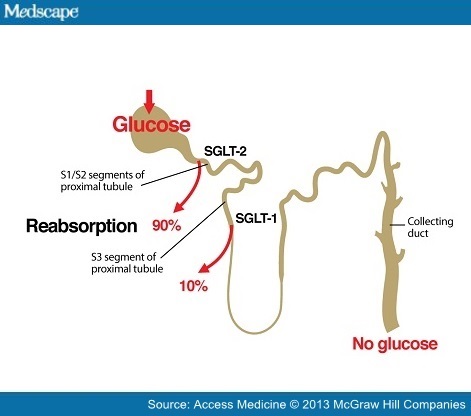Based on the recent updates and a study concerning Invokana* for type II diabetes, there seem to be a lot of questions being asked about its use and whether it is the best option for a particular patient. Although these questions are best presented to one’s prescribing doctor, there is a lot of information we are seeing that should help individual patients in addressing these questions on a case by case basis. (These items include the CANVAS study recently published in May 2015 among other things as detailed below).

Early indications and research has suggested there is a possible connection between Invokana and injuries related to kidney impairment and/or heart related issues. In May 2015, a report by the Institute of Safe Medication Practices (ISMP) discussed potential concerns regarding a potential link between Invokana and kidney damage after reviewing adverse event reports submitted to the FDA during the drug’s first year on the market after its approval in 2013. The group identified more than 457 incidents that implied signs of renal toxicity, including:
- Kidney failure
- Impaired renal (kidney) function
- Kidney stones
- Ketoacidosis
- Dehydration
- Urinary tract infection
- Hypersensitivity
An analysis of the FDA adverse event database shows that patients taking Invokana are more likely to report kidney failure than those taking non-SGLT2 diabetes drugs to Type 2 Diabetes. This likely is due to the mechanism of Invokana: rather than metabolizing blood sugar as insulin would do, it diverts the sugar through the kidneys which results in an overloaded renal capacity and, potentially, kidney failure.
On May 15, 2015 the FDA issued a warning about SGLT2 inhibitors for diabetes (like Invokana) may result in a serious condition of too much acid in the blood:
The U.S. Food and Drug Administration (FDA) is warning that the type 2 diabetes medicines canagliflozin, dapagliflozin, and empagliflozin may lead to ketoacidosis, a serious condition where the body produces high levels of blood acids called ketones that may require hospitalization. We are continuing to investigate this safety issue and will determine whether changes are needed in the prescribing information for this class of drugs, called sodium-glucose cotransporter-2 (SGLT2) inhibitors. Patients should pay close attention for any signs of ketoacidosis and seek medical attention immediately if they experience symptoms such as difficulty breathing, nausea, vomiting, abdominal pain, confusion, and unusual fatigue or sleepiness. Do not stop or change your diabetes medicines without first talking to your prescriber. Health care professionals should evaluate for the presence of acidosis, including ketoacidosis, in patients experiencing these signs or symptoms; discontinue SGLT2 inhibitors if acidosis is confirmed; and take appropriate measures to correct the acidosis and monitor sugar levels.

The FDA first approved Invokana as the first SGLT2 drug in March 2013. Since then, it has become a cash cow for J&J and its Janssen Pharmaceuticals unit. In the first quarter of 2015, the drug already brought in $278 million, triple what it made last year.
“The product is getting very good acceptance, and it’s now … exceeding all the other SGLT2 drugs that have recently come to market, by significant margins,” J&J CEO Caruso said during the first-quarter earnings call with analysts. “And it’s gaining market share despite increased competition.”
For patients suffering from acute renal/kidney issues while on Invokana, our law firm of Childers, Schlueter & Smith continues to investigate and review new Invokana injury claims on a daily basis. While we are reserving our efforts for the most serious of cases in terms of injuries and effect, we hope that we can provide stellar legal counsel to those in need and to further help those with questions about Invokana related injuries. If you have questions or concerns, please give us a call to see how we can help at 1-800-641-0098 or online at Contact Us. In addition, we want to help share the following Top 10 Things Invokana Patients Need To Know:
- Acidosis is when there is too much acid in the body. Diabetic ketoacidosis and ketoacidosis, serious conditions in which the body produces high levels of blood acids called ketones, have been reported in patients using the diabetes medicines known as sodium-glucose cotransporter-2 (SGLT2) inhibitors (see Table 1 in the Safety Announcement section for a complete list). Ketones can build up in the body if insulin levels are too low or during prolonged fasting.

- Pay close attention for any signs or symptoms of acidosis such as difficulty breathing, nausea, vomiting, abdominal pain, confusion, and unusual fatigue or sleepiness. Seek medical attention immediately if you experience any of these symptoms.
- Ketoacidosis associated with SGLT2 inhibitors may be present even if the blood sugar is not very high.
- The safety and efficacy of SGLT2 inhibitors have not been established in patients with type 1 diabetes, and FDA has not approved them for use in these patients.
- Do not stop or change your diabetes medicines without first talking to your health care professional. When untreated, diabetes can lead to serious problems, including blindness, nerve and kidney damage, and heart disease.
- Read the patient Medication Guide or Patient Package Insert you receive with your SGLT2 inhibitor prescription. They explain the benefits and risks associated with the use of the medicine. You may access Medication Guides by clicking on this link.
- Talk to your health care professional if you have questions or concerns about SGLT2 inhibitors or any of your other diabetes medicines.
- Report side effects from SGLT2 inhibitors such as Invokana immediately to your doctor and discussed a new plan of care.
- Report side effects from Invokana to MedWatch-Complete and submit the report Online. Download form or call 1-800-332-1088 to request a reporting form, then complete and return to the address on the pre-addressed form, or submit by fax to 1-800-FDA-0178.
- If you have suffered kidney damage, failure or ketoacidosis contact a Invokana Injury Lawyer to discuss your possible case as time is limited to file a potential claim. Considering the severe implications of ketoacidosis and renal failure, those pursuing SGLT2 side effects lawsuits may demand damages for: Medical expenses, Lost wages, Diminished earning capacity, Pain and suffering, Emotional distress, Rehabilitation costs and other potential damages.
Here is a complete list of approved SGLT2 inhibitors
| Brand name | Active ingredient(s) |
|---|---|
| Invokana | canagliflozin |
| Invokamet | canagliflozin and metformin |
| Farxiga | dapagliflozin |
| Xigduo XR | dapagliflozin and metformin extended-release |
| Jardiance | empagliflozin |
| Glyxambi | empagliflozin and linagliptin |
Again for patients suffering from acute renal/kidney issues or other complications while on Invokana, our law firm of Childers, Schlueter & Smith continues to investigate and review new Invokana injury claims on a daily basis. If you have questions, please give us a call to see how we can help. All initial inquiries are free of charge and without obligation. *Invokana is a registered product of Janssen Pharmaceuticals and their other related corporate entities. Their interests are adverse to ours as a law firm representing patients suffering from potentially related injuries.

@large.jpg)








